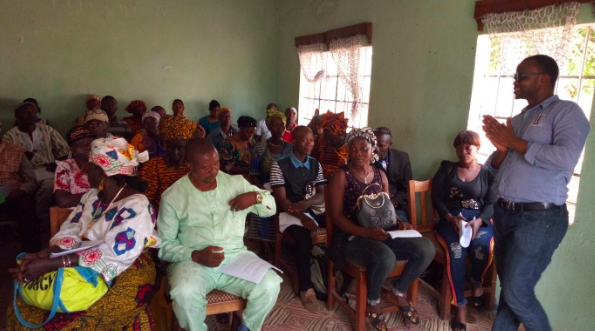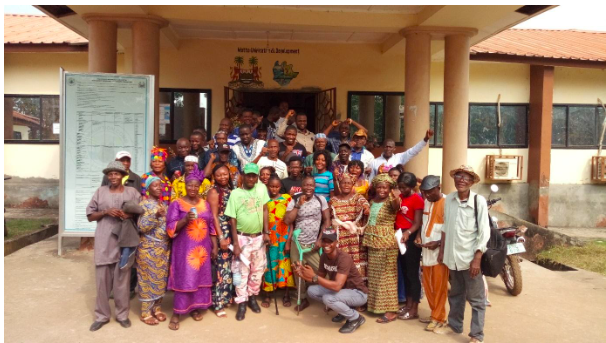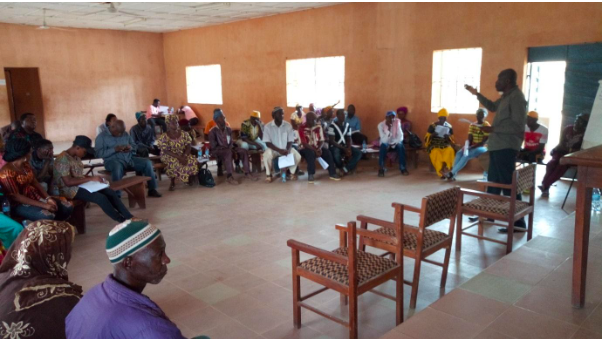Under the British colonial rule, Sierra Leone’s land mass was divided into two areas, the colony area and protectorate area. The British government, under the Crown Queen, had direct rule over the land within the capital of Freetown, which was the colony, leaving the provincial lands under the customary rule of chiefs and tribal heads, naming that area as the protectorate region. Since then, it is assumed that governance should be concentrated in the capital city, and that opinions discussed and passed as law in the capital are representation of the views of those in the provinces. This centralized governance mentality is what continues to befall Sierra Leone’s legislative reform process on land, even in recent modern days.
Before the formulation of the National Lands Policy in 2015, land governed in Sierra Leone was loosely entrenched in conflicting laws that did not provide a coherent governance symphony of rule for landowners and users. Thus, always there continues to be conflict between communities and land-based investments occupying their land. Most times, such conflicts have arisen from lack of clarity on lease terms, lease fees or having no alternative livelihood sources for communities whose lands have been leased from them by investment companies.
Successive governments, with support from international partners, and in collaborations with CSOs, have taken steps to reform the laws. Progressing from the enactment of the I976 Protectorate Lands Act to the formulation of the 2015 National Lands Policy, Sierra Leone was selected by the FAO to pilot the implementation of the Voluntary Guidelines on Responsible Governance of Tenure of Land and Marine habitat (VGGT) in 2016. The then government also initiated the establishment of a one-stop-shop for all agribusiness establishment in Sierra Leone through a seven-step guideline called the Agricultural Investment Approval Process (AIAP).
In 2019, a new government decided to actualize the implementation of the National Lands Policy. One such outstanding recommendation in the Policy, is the enactment of a Customary Land Act and the establishment of a National Lands Policy. Other recommendations include mapping of the entire land mass of Sierra Leone and affixing permanent title of ownership to these lands parcels. There are other propositions to make access, use and control of land non-discriminatory, especially by sex, so that women can have access to and control of land.
The legislative reform process commenced in mid-2019 with high profile national level consultations. The initial position of the Ministry of Lands was that funding constraints could not permit them to conduct any sub-national level consultation. However, at an open technical committee meeting, Land for Life and its ally civil society organizations pushed hard for a subnational level consultation before any bill could be drafted. This call was re-emphasized at their usual Technical Working group meeting which the VGGT Secretariat of the Ministry of Lands hosts on the third Wednesday of every month.
In adherence to the loud call for a subnational level consultation, the Ministry of Land reported that FAO had provided funding for a regional level consultation in the four regional headquarters of the country. A regional level engagement was not enough in the eyes of the Land for Life team. The VGGT Secretariat wanted consultations to happen as low as at district and selected- chiefdom level where land issues were entrenched.

The Land for Life team was particularly concerned about the exclusion of the voices of the actual land-owning families from the invitation list circulated by the organizers of the regional level engagements. Therefore, the team had to do something, quickly.
Discussion were held with the Land for Life International Programme Directors and Welthungerhife. A concept note explaining the need for the urgent intervention was presented. Once the International team gave green light, the ground team proceeded with what it called ‘district level pre-consultation’. These were meetings held with representatives of community land owning families, community leaders, chiefdom paramount chiefs and district level civil society and media representatives. Each meeting preceded the government’s planned regional level discussion in that area – thus the name ‘District Level Pre-Consultations’. At every meeting, the zero draft bills proposed by the legal consultants, which were to be the basis of discussion at the following regional level consultations, were reproduced and shared among all participants. Fortunately, some of the district level participants and chiefdom paramount chiefs at our meetings, were also invited to the regional level consultations.

In collaboration with NAMATI – a legal support CSO working on land and human rights in Sierra Leone, the bill documents were discussed under three topics:
-
What the people understand about land governing laws in the country;
-
What legal proposals are in the bill documents they would want to change or remove and
-
What other issues they would want government to consider and make as law.
Responses, requests and recommendations generated from those pre-consultations were detailed into a policy brief, printed and later-on shared with the Ministry of Lands and other authorities including NAMATI, for their consideration.
It is glaring to state that the Ministry of Lands later on overwhelmingly accepted our recommendations, and even used our findings as the basis of discussion with FAO and other agencies. Our report was added as an annex to their regional level report. We have been fully recognized as co-organizers of the 2nd National Lands Conference, a landmark event which could have brought together all actors on land under one roof to discussion pertinent issues relating to land reform, and most importantly, validate the two bills before they were sent to parliament. Unfortunately, this plan was disrupted by the Covid 19 restrictions imposed by health authorities.


